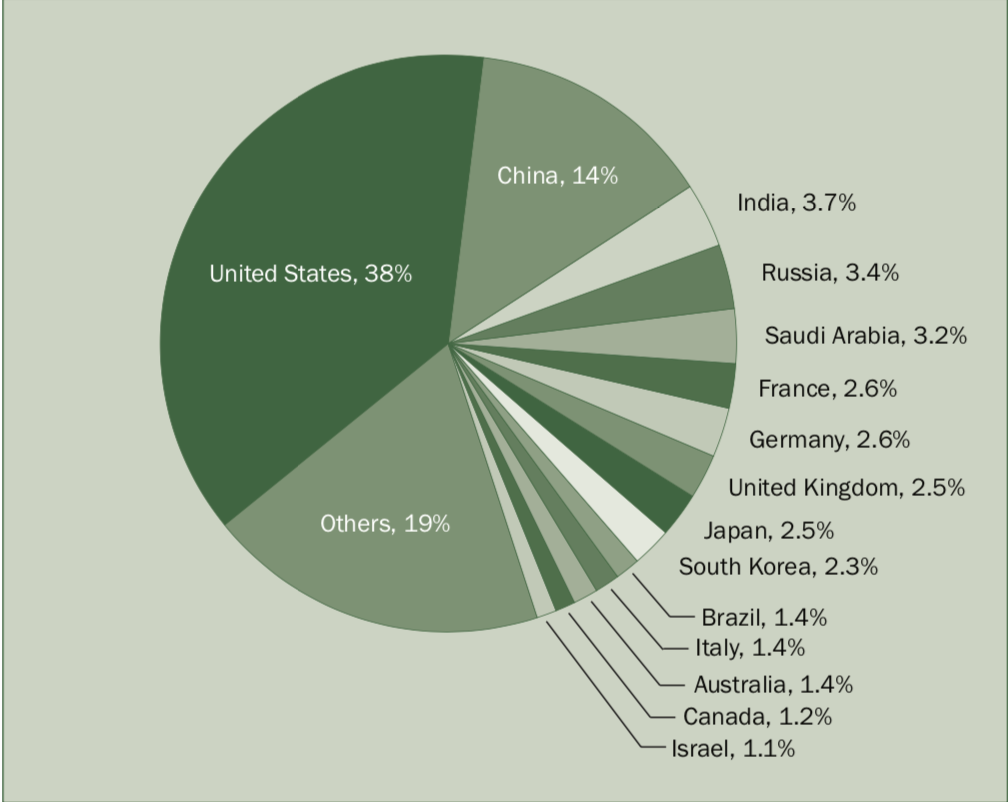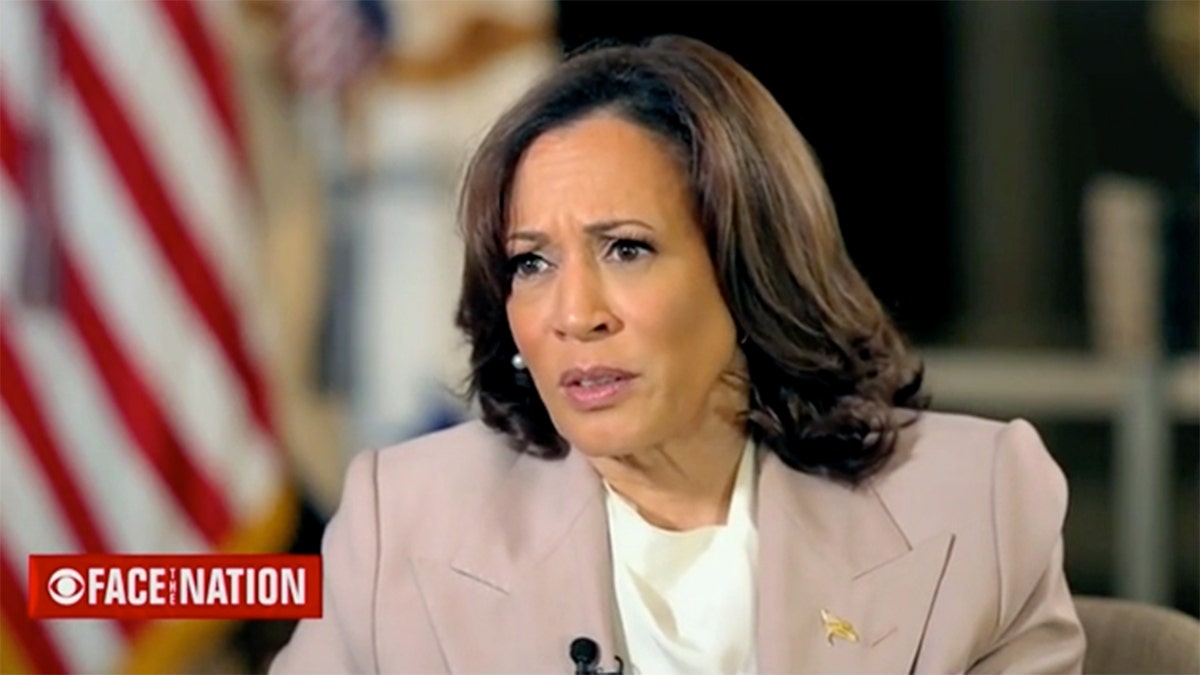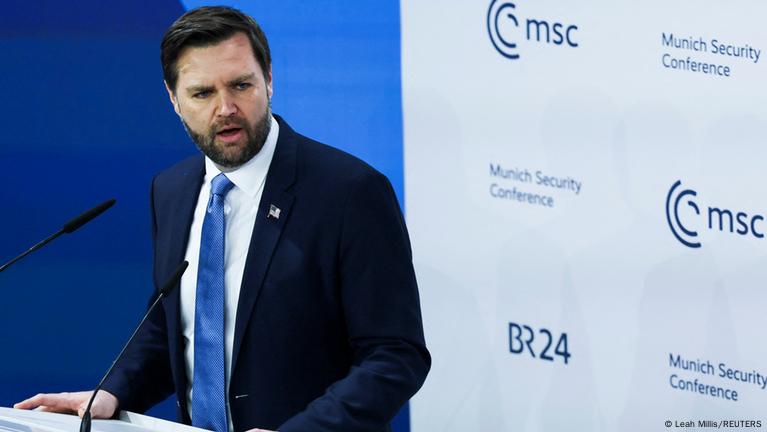Rising Global Military Expenditure: The Impact Of The Ukraine Conflict

Table of Contents
Increased Defense Budgets Across the Globe
The Ukraine conflict has acted as a catalyst, significantly accelerating the growth of military budgets worldwide. This increase isn't isolated to a few nations; it's a global phenomenon reflecting a renewed focus on defense preparedness and a reassessment of geopolitical realities.
NATO Members' Response
Since the invasion of Ukraine, numerous NATO members have announced significant increases in their defense budgets. This demonstrates a collective response to the perceived threat and a commitment to strengthening the alliance's collective defense capabilities.
- Germany: Germany has pledged a substantial increase in its defense spending, committing to exceeding the NATO target of 2% of GDP allocated to defense. This includes significant investments in modernizing its armed forces and acquiring advanced weaponry.
- Poland: Facing direct geopolitical implications from the conflict, Poland has dramatically increased its military spending, focusing on bolstering its land forces and procuring advanced air defense systems.
- United Kingdom: The UK has also seen a notable rise in defense spending, reflecting a commitment to maintaining a strong military presence and contributing to NATO's collective defense. This includes investment in new military technologies and strengthening its cyber defenses.
The shift is not just about budget increases; it’s about increased military readiness and modernization. This involves:
- Increased procurement of advanced weaponry, including fighter jets, tanks, and missile defense systems.
- Expansion of armed forces personnel through recruitment and increased training programs.
- Greater investment in military infrastructure, including bases, training facilities, and communication networks.
Non-NATO Countries' Reactions
The impact of the Ukraine conflict extends far beyond NATO members. Countries outside the alliance, particularly those geographically close to the conflict or facing similar geopolitical threats, are also significantly increasing their military spending.
- Finland and Sweden: Following their applications to join NATO, both countries have substantially increased their defense budgets, reflecting a heightened sense of security concerns.
- Japan: Japan, facing growing tensions with China and North Korea, has announced increased defense spending, marked by a significant shift in its traditionally pacifist defense posture.
- South Korea: Similarly, South Korea, facing ongoing threats from North Korea, has also increased its military budget to bolster its defensive capabilities.
The reasons behind this surge in military spending outside NATO are varied, but generally include:
- Accelerated arms procurement programs to address perceived vulnerabilities.
- Strengthening of cybersecurity defenses to counter potential cyberattacks.
- Increased collaboration with military allies to enhance regional security cooperation.
The Economic Consequences of Rising Global Military Expenditure
The dramatic increase in global military spending has significant economic consequences, creating a complex web of opportunity costs and market impacts.
Opportunity Costs
Diverting substantial resources from social programs to military spending carries significant opportunity costs. These are the potential benefits foregone by not investing those resources elsewhere.
- Reduced funding for crucial social programs: Increased military spending often comes at the expense of vital social programs such as healthcare, education, and infrastructure development. This can lead to long-term social and economic consequences.
- Potential for increased national debt: The surge in military spending can strain national budgets and lead to increased levels of national debt, potentially impacting long-term economic stability.
- Negative impacts on economic growth: Reduced investment in education, research and development, and infrastructure can negatively impact long-term economic growth, hindering innovation and productivity.
Impact on Global Markets
The rise in military expenditure significantly impacts global markets, particularly the arms industry.
- Increased demand for weapons and military technology: The increased demand drives up prices and creates potential shortages of certain raw materials and technologies.
- Price increases for defense-related goods and services: The increased demand inevitably leads to higher prices for weapons, equipment, and related services, impacting budgets and resource allocation.
- Potential for supply chain disruptions: The sudden surge in demand can strain supply chains, leading to delays and shortages of critical components and materials.
The Geopolitical Implications of the Arms Race
Rising global military expenditure is profoundly reshaping the geopolitical landscape, increasing tensions and potentially destabilizing the international order.
- Heightened risk of regional conflicts: The increased militarization can escalate tensions and increase the risk of regional conflicts, potentially leading to broader international conflicts.
- Increased competition between major powers: The arms race fosters competition between major global powers, exacerbating existing geopolitical rivalries and increasing the potential for miscalculation and conflict.
- Challenges to global security and stability: The overall effect of rising military expenditure is a challenge to global security and stability, diverting resources and attention away from crucial diplomatic efforts and collaborative solutions to global issues.
Conclusion
The Ukraine conflict has undeniably spurred a dramatic rise in global military expenditure, with far-reaching economic and geopolitical consequences. The opportunity costs associated with this surge are significant, potentially hindering progress in critical areas such as healthcare and education. Furthermore, the increased military spending fuels an arms race, raising concerns about regional stability and global security. Understanding the implications of rising global military expenditure is crucial for policymakers and citizens alike. We must advocate for diplomatic solutions and strive to prevent further escalation, fostering a world where resources are prioritized for sustainable development rather than conflict. Let's work together to reverse this trend and promote a future with reduced military spending and increased global cooperation to address the critical challenges facing humanity.

Featured Posts
-
 Police Watchdogs Ofcom Complaint The Chris Kaba Panorama Investigation
Apr 30, 2025
Police Watchdogs Ofcom Complaint The Chris Kaba Panorama Investigation
Apr 30, 2025 -
 Kamala Harris Mia After Election Democratic Insiders Express Disappointment
Apr 30, 2025
Kamala Harris Mia After Election Democratic Insiders Express Disappointment
Apr 30, 2025 -
 Arkema Et Le Document Amf Cp 2025 E1027752 Informations Cles
Apr 30, 2025
Arkema Et Le Document Amf Cp 2025 E1027752 Informations Cles
Apr 30, 2025 -
 Police Leaders Tweet On Chris Investigation Into Free Speech Claims
Apr 30, 2025
Police Leaders Tweet On Chris Investigation Into Free Speech Claims
Apr 30, 2025 -
 Natural Gas Leak Prompts Downtown Louisville Evacuations
Apr 30, 2025
Natural Gas Leak Prompts Downtown Louisville Evacuations
Apr 30, 2025
